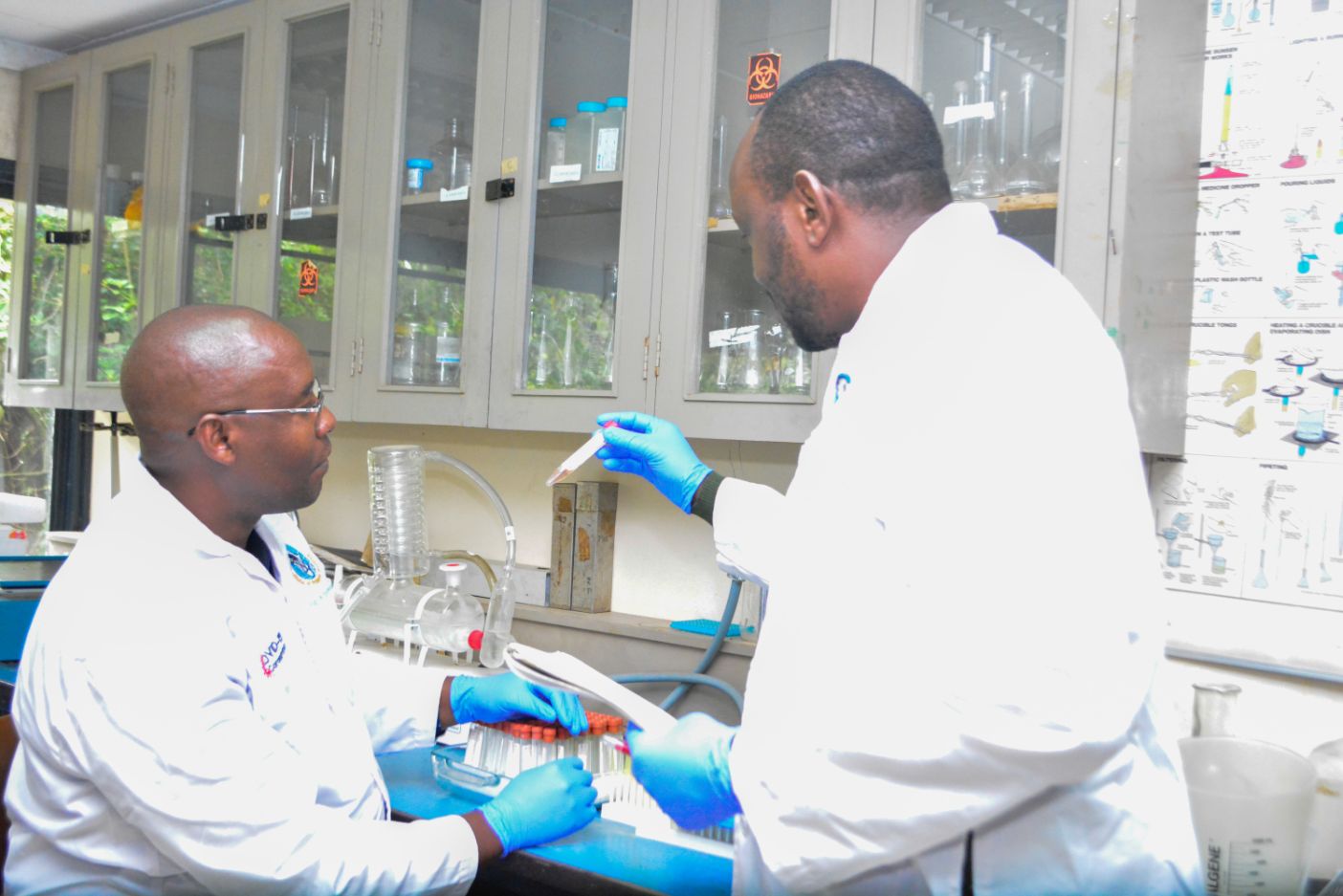Chief of Research

Name: Dr. Atunga Nyachieo, PhD
Title: Chief of Research
Academic Qualifications: BSc: – JKUAT, MSc – KU-Leuven, Belgium PhD – KU-Leuven, Belgium
Area of Expertise: In-vitro fertilization, Molecular Biology, Mechanisms of human diseases, Phage Biology, Endometriosis, Contraceptive Research, Systematic Reviews and meta-analysis
KIPRE as a platform for research, diagnosis and product development
The Kenya Institute of Primate Research has maintained a serene environment for research. In view of this, KIPRE has acquired new collaborators, new programs, and new research equipment. The various research programs organized into 4 Departments, 2 Centres, and 2 support departments at KIPRE are briefly highlighted below:
KIPRE Departments

1. Reproductive Health and Biology department. Conduct research on microbicides, contraceptives, endometriosis, assisted reproductive technology, Chlamydia & herpes infections, prostate cancer and related reproductive tract infections and disorders. This department also houses the phage biology program: Read More
2. Tropical infectious diseases department: Conduct research on malaria, leishmaniasis, schistosomiasis, synthetic biology dengue virus as well as co-infections of these pathogens: Read More
3. Non-communicable diseases department: Conduct research on lifestyle diseases including diabetes, cancer, Parkinsons’ disease, Alzheimer’s disease, stroke: Read More
4. Conservation biology department: Conduct research mainly on the conservation of endangered primates and conducts and maps primate habitats. Also conducts studies on the interaction of primates and humans: Read More
5. One Health Centre:
Conduct research on zoonotic diseases in the context of one health based on human-livestock-wildlife interactions: Read More
6. Kenya Snakebite Research and Intervention Centre:
Conduct multi- disciplinary research and clinical activities leading to better diagnosis and therapies for snakebite, while working towards community-based model intervention systems with the primary goal of saving the lives and limbs of those afflicted with snakebite: Read More
7. Animal science department:
Provide veterinary care, animal husbandry and welfare. Breeds experimental animals. Read More
8. Administration:
Provide administrative support for institutional research activities
KIPRE’s recognition for science
Firstly, KIPRE has been designated by NACOSTI as a hub and lead coordinating centre for the new program, synthetic biology. This is because KIPRE has made progress internally by training its scientists and gotten new collaborators from all over the world in this new field. This culminated in a high profile synthetic biology workshop held at KIPRE attended by local and international participants. Secondly, on the phage platform (therapy for antimicrobial resistance), the KIPRE has initiated new collaborative ventures through the Phages for Global Health (USA), African Phage Forum (APF), Leicester University (UK) and Hungary. These new ventures will help in technology the transfer including sharing sequencing platforms for the already purified phages isolated in our center for therapy against Antimicrobial resistance (AMR) bacteria. As KIPRE we pride as an internationally recognized center for phage research for therapy.
Thirdly, KIPRE in collaboration with the Natural product Industry Initiative is performing research on herbal formulations for COVID-19 using non-human primates. This is in line with the global view that herbal products may help in the management of COVID-19 and its emerging variants. In addition, KIPRE continues to run a nationally accredited COVID-19 testing and research centre which helps both in patient management and epidemiology survey of SARSCOV-2 related variants. We employ RT-PCR as the gold standard test and we are recently validating serological test as a complementary test. Besides, through NRF, KIPRE is leading an epidemiological zoonotic SARS-COV-2 survey in bats, humans and non-human primates. Other new collaborators on board in various KIPRE programs include: Henry Jackson Foundation and HJF Medical Research International Inc (HJFMRI), Northern Rangerland Trust (NRT), Namunyak Conservancy, Washington State University (WSU) amongst others.

Fourthly, Since KIPRE is an accredited animal care and use centre both locally and internationally by AAALAC, we got support through the
University of Leeds in the UK to provide animal ethics training at KIPRE. This training attracted various local and international participants and placed KIPRE on an international platform as an institution that cares for the research animals and implements the ethically acceptable principles (3Rs).
Fifthly, KIPRE has become the first African country to achieve the silver award for Good Financial and Grants Practice (GFGP). This shows that KIPRE has well-structured financial procedures and has put measures for prudent use of both recurrent and project funds.
Sixthly, KIPRE is setting up a bioinformatics platform for analysis of huge molecular
sequence data arising from KIPRE molecular lab as well from the collaborating labs. This is a major platform.
Finally, KIPRE has acquired various state of the art molecular equipment including a sequencer; a flow cytometer and other equipment for research support. KIPRE is also expanding animal facilities in view of increased demand for contract research.
Dr. Atunga Nyachieo who is currently the Chief of Research at the Institute of Primate Research, believes that “good research ethics is equal to good science”.

